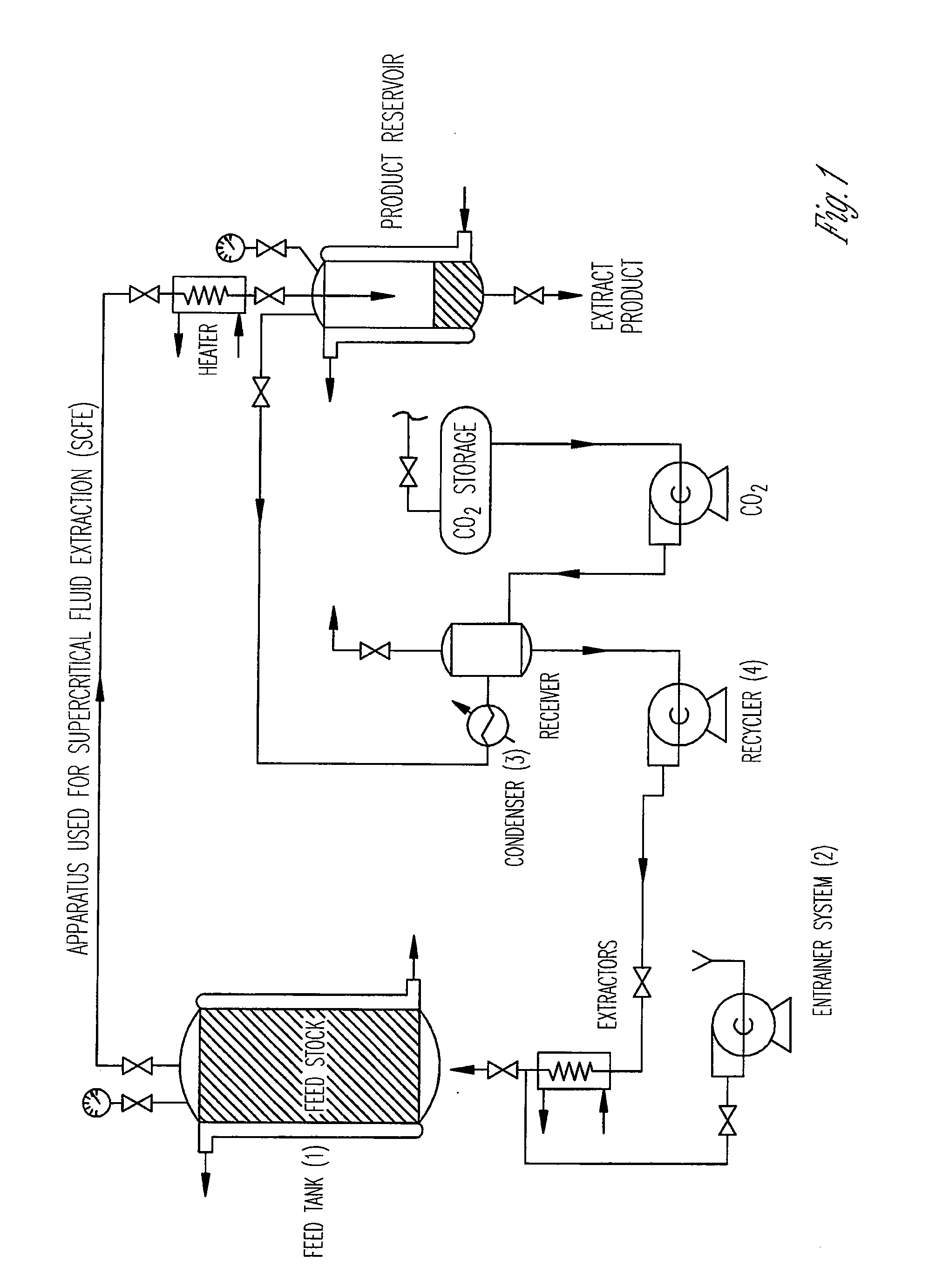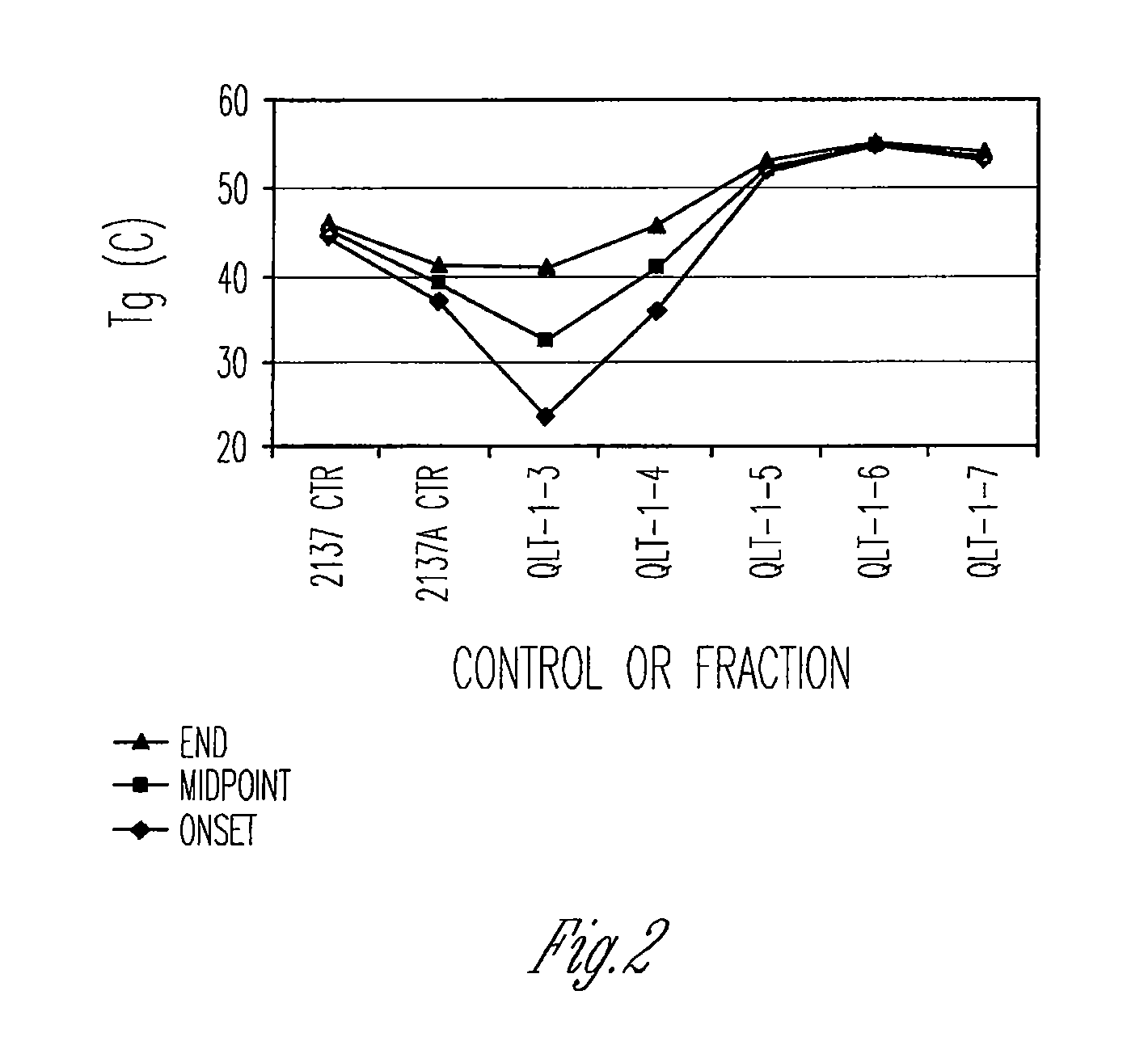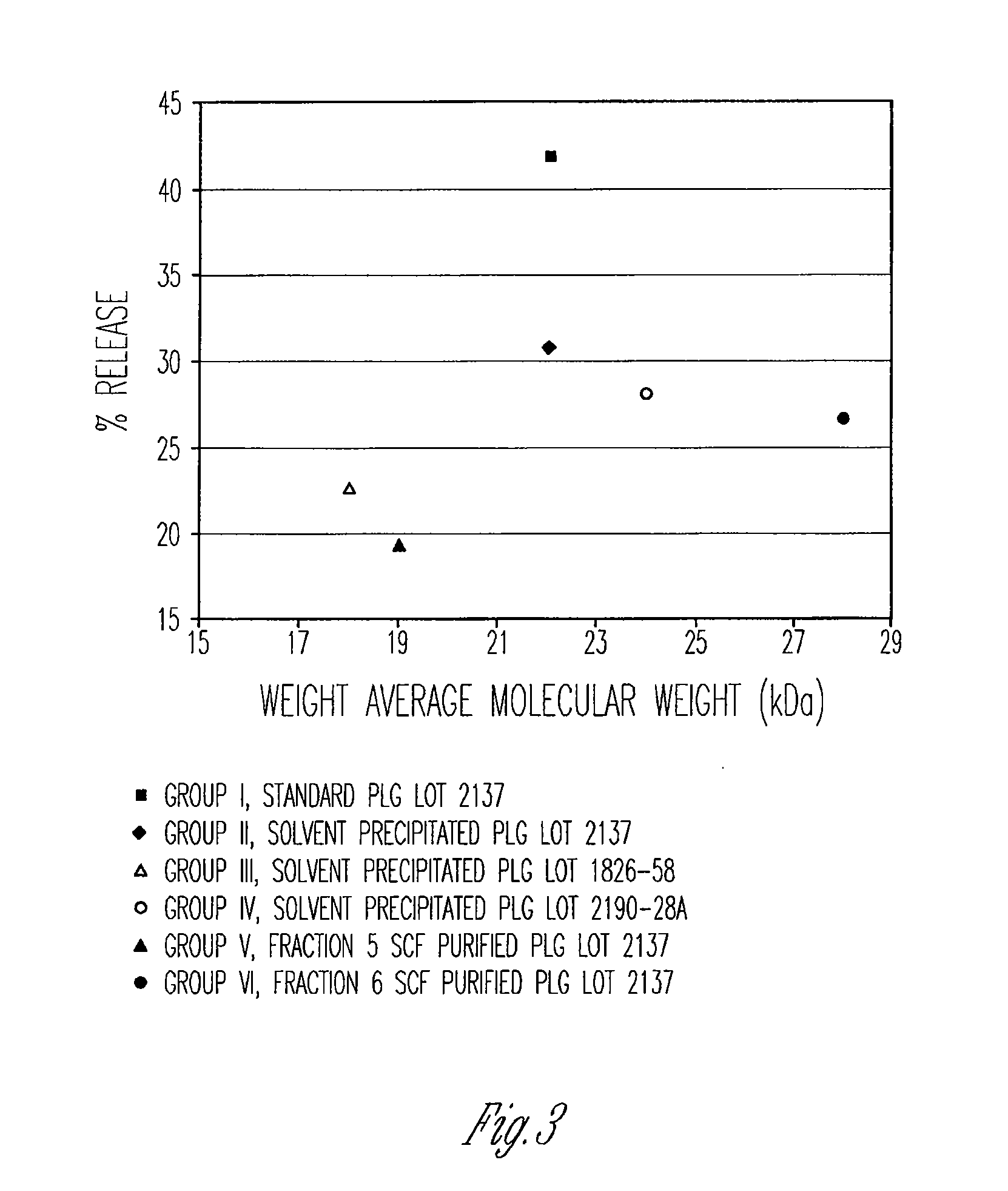Preparation of biodegradable polyesters with low-burst properties by supercritical fluid extraction
a technology of supercritical fluid and polyester, which is applied in the direction of drug compositions, peptides, chemical production, etc., can solve the problems of large amount of hazardous organic solvents, difficult handling, or disposal, and the initial burst effect of bioactive substances is reduced, so as to achieve the effect of reducing the initial burst effect of bioactive substances
- Summary
- Abstract
- Description
- Claims
- Application Information
AI Technical Summary
Benefits of technology
Problems solved by technology
Method used
Image
Examples
example 1
Fractionation Procedure and Results
[0098]Supercritical fluid extraction (SFE) fractionation of a PLG copolymer was examined as a method for narrowing the molecular weight distribution of this polyester to obtain PLG copolymer fractions with a reduced initial burst effect in controlled release formulations such as Atrigel®. A single lot of polyester was fractionated using generic SFE processing conditions with no process development or optimization. The polyester examined in the experiment was an 85:15 lactide / glycolide PLG (Part No. 01280, Lot 2137) with a weight average molecular weight (Mw) of 25 kDa, using an apparatus as illustrated in FIG. 1.
[0099]A sample of 20.4 g of the PLG polyester was loaded into the extraction vessel and processed by multiple sequential extractions of pure supercritical carbon dioxide, using a CO2 pressure profile to fractionate the polyester into seven sequential fractions (see Table 1, below). The first fraction that was collected resulted from supercr...
example 2
Method of Measuring the Molecular Weights (Mw) of Polyesters
[0103]1. Prepare the Polyester Laboratories PS-2 EasiCal narrow range polystyrene standards A and B by dissolving the pre-formed standard spatulas A and B into separate vials with 5.0 mL of THF.
2. Prepare all required controls by dissolving each raw polyester into THF to make approx. 0.5% w / v solutions of each control.
3. Prepare all polyester raw material samples by dissolving each into THF to make approx. 0.5% w / v solutions of each sample.
4. Transfer each standard, control, sample solution, and some blank THF into separate autosampler vials for analysis.
5. Condition an HPLC system to achieve a stable baseline with the following parameters:
Column—Polyester Laboratories PLgel MIXED-D, 5 micron×30 cm×7.5 mm GPC column, or equivalent
Guard Column—PLgel 5 micron guard column, or equivalent
HPLC—equipped with differential refractive index detector with controlled temperature, controlled temperature column compartment, and software...
example 3
Reduction in Initial Burst Effect of Purified Biodegradable PLG Flowable Controlled Release Compositions in Rats
[0113]Table 4, below, and FIG. 3 show the results of a study in rats of the 24 hour release of octreotide from flowable controlled release formulations that all contain the same weight percentage of purified and unpurified 85 / 15 lactide / glycolide PLG samples. Each delivery system is 50% polymer and 50% N-methylpyrrolidone (NMP) and was gamma irradiated at 18-28 kGray. Just prior to injection the delivery system was mixed with the contents of a drug syringe. Each drug syringe contained the product of lyophilization of an aqueous solution of octreotide acetate and citric acid as described in patent application U.S. Ser. No. 11 / 667,443, filed May 9, 2007 and incorporated herein by reference. In this study, flowable compositions containing octreotide were implanted in rats, and the amount of the contained octreotide released in the first 24 hours after implantation was determi...
PUM
| Property | Measurement | Unit |
|---|---|---|
| Temperature | aaaaa | aaaaa |
| Temperature | aaaaa | aaaaa |
| Temperature | aaaaa | aaaaa |
Abstract
Description
Claims
Application Information
 Login to View More
Login to View More - R&D
- Intellectual Property
- Life Sciences
- Materials
- Tech Scout
- Unparalleled Data Quality
- Higher Quality Content
- 60% Fewer Hallucinations
Browse by: Latest US Patents, China's latest patents, Technical Efficacy Thesaurus, Application Domain, Technology Topic, Popular Technical Reports.
© 2025 PatSnap. All rights reserved.Legal|Privacy policy|Modern Slavery Act Transparency Statement|Sitemap|About US| Contact US: help@patsnap.com



